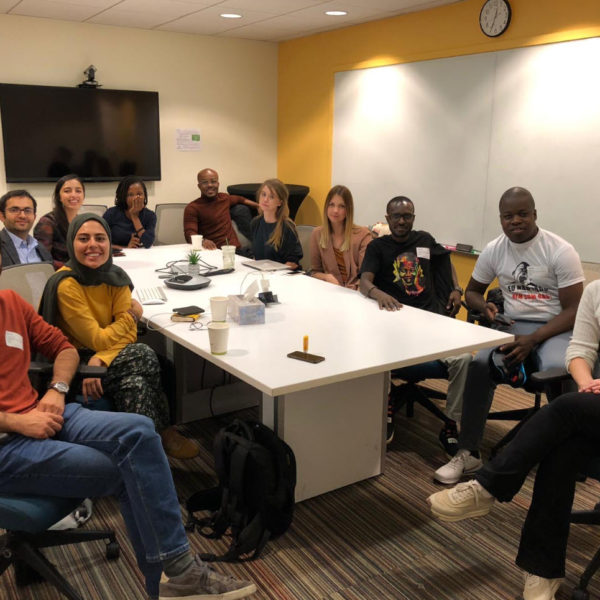In 1981, a group of journalists in the United States correspondents decided to set an organization that can help deal with the plights of other reporters who got into trouble as a result of their work. That was the start of the Committee to Protect Journalists (CPJ). Today, CPJ is recognized worldwide for its work as an independent, nonprofit organization that promotes press freedom while defending the rights of journalists to report the news safely and without fear of reprisal.
During this year’s Double Exposure Film Festival in Washington DC, a group of Transparency International’s Young Journalists sat together to share experiences on global trends in press freedom and how it relates to their home countries. In an engaging conversation led by Maria Salazar Ferro, director of Committee to Project Journalists’ Emergencies Department, the group explored different approaches on digital security, how to protect work-related devices as well as the global resources available for journalists.
For Maurice Oniango, a freelance journalist who works in Kenya, the relatively free press in the country enables him to work without fear of reprisal. Yet, the discussion on digital security gave him some valuable tips on how to stay safe online. “This discussion makes me realize how vigilant I need to be with my online activities for the sake of my security, that of individuals I work with and the security of my sources.”
The group of Young Journalists learnt about secure ways of communicating with individuals when working on very sensitive stories. Secure email services such as Tutanota, the use of Virtual Private Networks (VPNs) and applications such as Wikr Pro and Signal. Trainings and discussions such as the one organized by Transparency International during the Double Exposure Festival, are especially valuable for freelance journalists who operate in high risk environments.
Sally Hayden is a journalist focused on migration and human rights issues, reporting across Africa, the Middle East and Europe. She expressed the critical role digital security plays in her line of work. “It is incredibly important when it comes to my work as a journalist vulnerable sources across the world, and something I worry about a lot. As a freelancer, you have to take responsibility for it on your own, whereas staff journalists usually have experts they can consult and bring problems to.” Natali Jovanovic, a Serbian journalist, shared similar views about this. “Our meeting reminded me of how important digital security is for the job I am doing. As an investigative journalist, we spend a lot of time online researching, storing important documents and data on the same device. It’s important to understand what that means and how to protect ourselves.”
A 2019 report by Freedom House indicates that “freedom of the media has been deteriorating around the world over the past decade.” This has particularly heightened in recent times, with some recorded killings of journalists this year. Operating within this climate requires a diligence on the part of journalists. For Damilola Banjo, a Nigerian journalist who participated in the discussions, “knowing the existence of an organization like the Committee to Protect Journalists (CPJ) and its ability to support journalists globally is a great thing.” Although she has had some digital security trainings in the past, Damilola considers the discussion very valuable based on the knowledge of available resources that it gave her.
“As a Palestinian journalist based in the West Bank,” says Ahmed Bahir, another YJ, “you are controlled by both the Israeli and the Palestinian authorities”. Although the degree of control varies on both sides, Ahmed believes being put in touch with organizations that follow up with journalists around the world due to their journalistic work is vital. “Although CPJ cannot advocate for them, reporting about their plight is a good thing since it gets their stories to be highlighted.”


